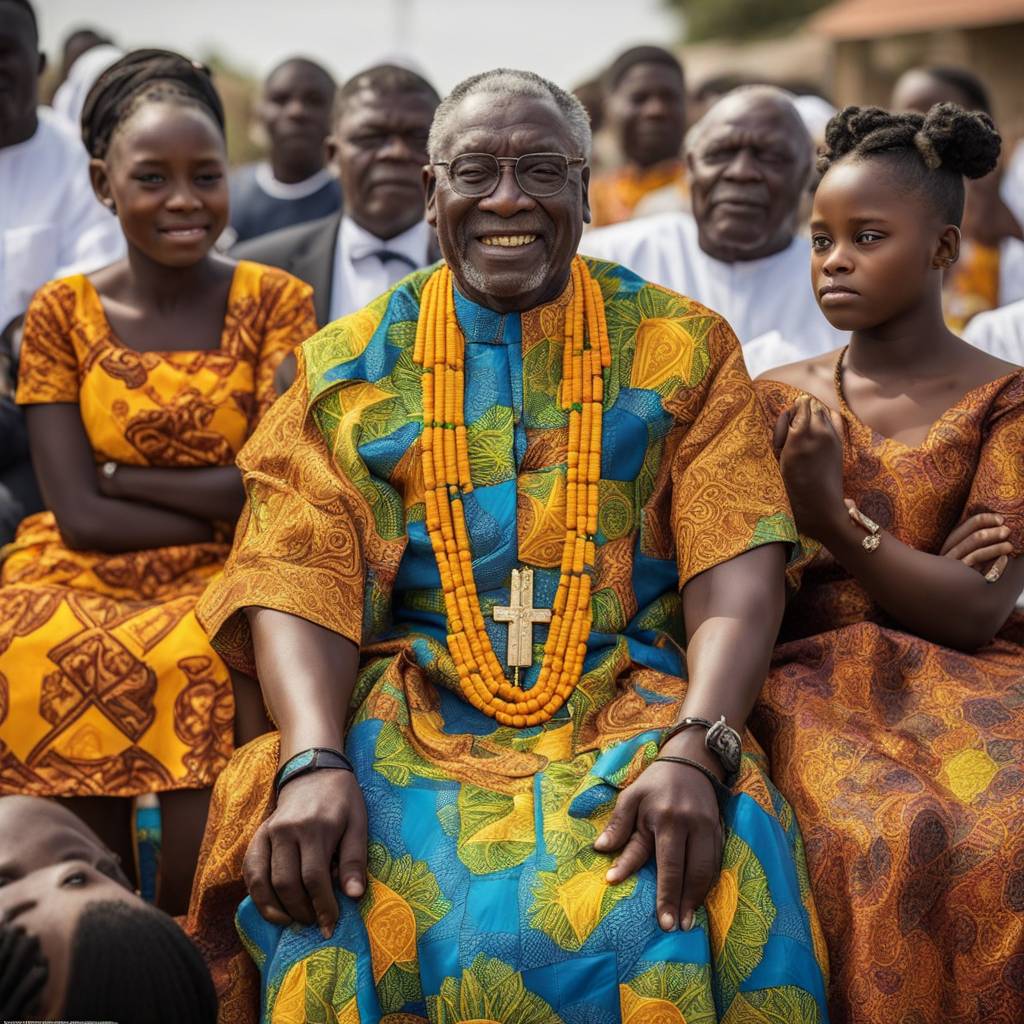An influential traditional priest in Ghana has sparked outrage by marrying a 12-year-old girl in a customary ceremony. The legal minimum age for marriage in Ghana is 18, but child marriage persists in the country, with 19% of girls marrying before 18 and 5% before their 15th birthday. The elaborate ceremony attended by dozens of community members was widely shared on social media, prompting calls for the authorities to investigate and dissolve the marriage.
During the ceremony, women advised the girl to dress provocatively for her husband and use perfumes to enhance her sexual appeal. Critics interpreted these statements as implying that the marriage was not just ceremonial. Community leaders from the Nungua indigenous community, to which both the girl and the priest belong, defended the marriage as a tradition and custom. They claimed that the girl had been undergoing rites to become the priest’s wife for six years, without affecting her education.
The high priest, Nuumo Borketey Laweh Tsuru XXXIII, is a “Gborbu Wulomo,” a traditional leader in the Nungua community who performs spiritual rituals and enforces cultural practices. The community leaders condemned the public opposition to the marriage, describing it as ignorant. They said the girl would undergo a second customary ceremony to prepare her for her new role as the wife of the high priest, including duties such as childbearing.
Government authorities in Ghana have not yet responded to the controversial marriage. While Ghanaian law recognizes customary marriages, it does not permit child marriages under the guise of culture or tradition. The outcry over the marriage reflects ongoing challenges in addressing child marriage in the country, despite efforts to reduce its prevalence over the years. The incident has sparked broader conversations about the intersection of tradition, culture, and human rights in Ghanaian society.








